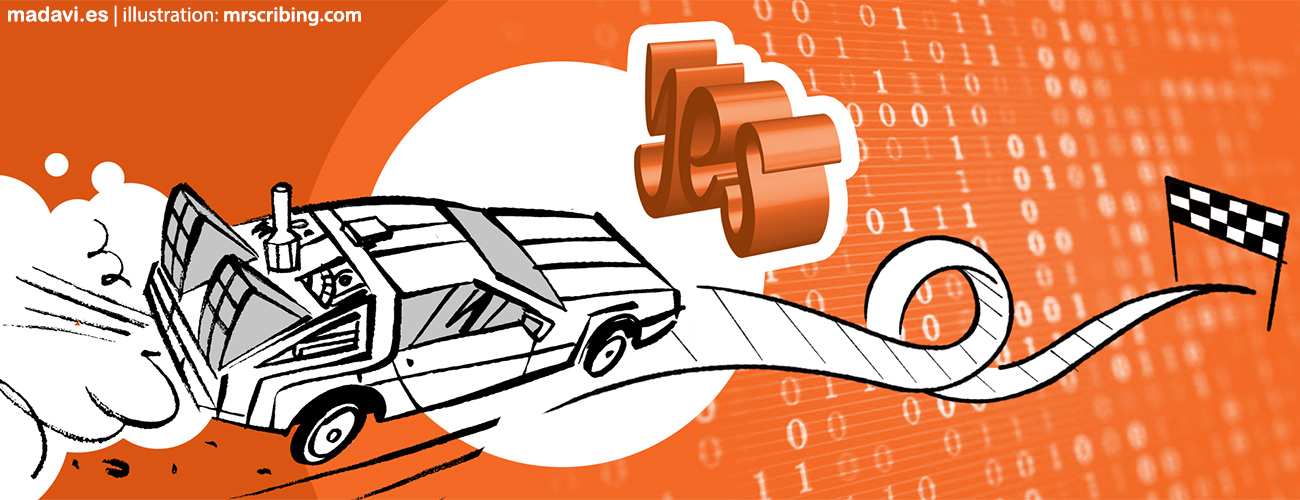The digital transformation of Spanish companies is today one of the main challenges in the pursuit of competitiveness. Many of them are aware of this reality and are investing in technological expenditure. According to IDC Research Spain, this will reach 41,600 million euros in 2018.
However, it is necessary to look beyond the material investment, betting on new paradigms of business management in line with the reality of the current world, which is increasingly complex, and so we must do something simple. Fernando Iglesias, CEO of Madavi, proposes “to change the way we change”.
Appreciative Inquiry is a clear example of this. It is a methodology to promote change in organizations, which transforms culture and business simultaneously. It focuses on aligning strengths towards aspirations in the sense of opportunities.
“Each and every one of the transformations underway at present have to do in greater or lesser intensity with digitalization”. To digitalize the organizational culture, it is essential that people have an attractive image of the future” comments Madavi CEO Fernando Iglesias. He adds that this image has to be attractive for the clients, for the company and also for oneself, the last element being the key factor of change: “If this is the case, everyone will want to get on the digitalization bandwagon. It will be a much better place for all of us to be.”
Appreciative Inquiry
The reality is that many people do not see themselves reflected in the change and when they do not see themselves they tend to resist either consciously or unconsciously. To resist is to take energy away from the change when it is the moment that is most needed.
The premise of appreciative inquiry is that a system, in this case a company, grows and develops at a higher speed as long as it investigates what it does have and what it does want, instead of inquiring into the problems. To digitalize the organizational culture, it is essential that people visualize an attractive image of the future: a desirable place for the whole team and for each one individually. “When the attitudes of everyone add up, they push you forward and the whole team goes in the same direction,” says Iglesias.
We must also talk about the “Elephant in the room”, by that he means job security. People are afraid that digitalization will take their job.
“LinkedIn’s proposal with its employees is honest and beneficial for all. It is assumed that this era of change does not guarantee long-term employment. LinkedIn offers its employees that when you leave the company you will be a better, more valued professional and ‘ambassador’ of LinkedIn and its values in exchange for its energy and talent. All this is very appreciative, the key is to find what is good in a situation,” says Iglesias.
The Elephant in the room, in this case it is a very large elephant, must be dealt with and the process itself must be a source of employability for those who stay and those who will leave in the future. The market needs workers, it is the way to have better salaries and opportunities … let’s be a factory of digital workers. It’s a WIN WIN. The speed arises when many win.
Six key steps
How to apply Appreciative Inquiry to drive digital transformation? Iglesias points out six steps:
- Create a Full Power team with two characteristics: it has to represent the whole company and include all the necessary external capacities. Groups of between100 and 200 people.
- Investigate the advantages of all the technological changes that have appeared in our lives, the benefits obtained, and how each person adopted these technologies, the strengths that they used. These inquiries and their sharing teach us to see that YES we are prepared and that YES we know how to adapt to technological changes, as it indeed has happened in our own lives.
- To create an attractive image of the future of the totally digitalized company as a whole, inspired by external capabilities, by experts in Big Data, Block Chain or seamless interaction. The best suppliers will be happy to co-create with your company.
- To design the areas of opportunity that drive us, uniting the knowledge that the company has of the market and its customers, the experience that its employees have hoarded up and the new strengths that the “externals” bring. This is how you learn a lot, it is one of the fastest learning methods: create your own way with the knowledge of others. Collective intelligence.
- Collective action, many people moving at the time in the same direction: employees and experts.
- To ensure that the action is the source of learning.
About digital transformation
To get an idea of the landscape that is occurring around digital transformation in Spain, according to data from IDC Research in Spain, technological spending in companies at country level will reach 41,600 million euros this year and 50% of global GDP in 2021 will come from businesses affected by digital transformation. At the same time 45% of the income of digitally transformed companies will come from new business models.


